Discover The New Humanitarian
The New Humanitarian

The New Humanitarian
Author: The New Humanitarian
Subscribed: 580Played: 18,468Subscribe
Share
Description
The New Humanitarian brings you an inside look at the conflicts and natural disasters that leave millions of people in need each year, and the policies and people who respond to them. Join TNH's journalists in the aid policy hub of Geneva and in global hotspots to unpack the stories that are disrupting and shaping lives around the world.
155 Episodes
Reverse
From new conflicts in Gaza and Sudan, to flood disasters in Libya and East Africa, to earthquakes in Morocco, Syria, and Türkiye, humanitarian crises around the world drove more than 350 million people to need help in 2023. While funding to address those needs reached record levels, so too did the funding gap. Only a third of the $57 billion that humanitarians appealed for this year was actually received – the largest shortfall in years. For the last episode of 2023, we reflect on the year that's been, Rethinking Humanitarianism-style. Which events have forced a rethink in aid? Have any lines been drawn in the sand? And how has 2023 been a turning point in the way aid is delivered? Co-hosts Heba Aly and Melissa Fundira convene a roundtable for a wide-ranging discussion on everything from humanitarianism's more prominent role in the climate agenda, to shifting ideologies on neutrality and mutual aid networks, and of course funding. Guests: Nazanine Moshiri, senior analyst (Climate, Environment & Conflict, Africa) at the International Crisis Group; Irwin Loy, senior policy editor at The New Humanitarian; Dustin Barter, senior research fellow at ODI's Humanitarian Policy Group ____ Got a question or feedback? Email podcast@thenewhumanitarian.org or have your say on Twitter using the hashtag #RethinkingHumanitarianism. ____ SHOW NOTES Inklings | The Gaza effect, 2024 budgets, obscure acronyms What happened on COP28's big humanitarian day? Myanmar, Gaza, and why it's time for humanitarian resistance For some aid workers, internal Gaza tensions unearth long-overdue debates How mutual aid in Sudan is getting international support Why the Africa Climate Summit can't afford to overlook conflict Global Humanitarian Overview 2024: UN launches $46 billion appeal for 2024 as global humanitarian outlook remains bleak
Even before Israel's current siege, 80% of Gazans relied on international humanitarian aid for survival, according to the UN. But under international law, it's the occupying power's responsibility to provide food, shelter, medicine, and other essential needs. Have aid agencies historically let Israel off the hook by failing to challenge the very thing that creates the need for aid in the first place: Israel's occupation? And if decades of humanitarian response in the region have failed Palestinians thus far, as some argue, but halting it would be catastrophic, as others say, then how should aid agencies pivot? Guests: Yara Asi, assistant professor in the School of Global Health Management and Informatics at the University of Central Florida, co-director of the Palestine Program for Health and Human Rights, US Fulbright scholar to the West Bank; Chris Gunness, former UNRWA spokesperson ____ Got a question or feedback? Email podcast@thenewhumanitarian.org or have your say on Twitter using the hashtag #RethinkingHumanitarianism. ____ SHOW NOTES Aid to Palestinians has failed. Here's how to fix it. In freezing aid to Palestinians, donors trample a well-worn path What's Unsaid | The media's silencing of Palestinians Prior to current crisis, decades-long blockade hollowed Gaza's economy, leaving 80% of population dependent on international aid | UNCTAD Responding to the Humanitarian Crisis in Gaza: Damned if you do... Damned if you don't!
It has been six months since a military conflict in Sudan began claiming thousands of lives and triggered, according to the UN, the world's fastest growing displacement crisis. As international NGOs and the UN struggle to access certain areas, decentralised mutual aid networks – known as emergency response rooms (ERRs) – have stepped in to fill the vacuum. In acknowledgement of this reality, donors, international NGOs and UN agencies are trying to shift their programmes to support these local volunteer-led networks, but deep-seated bureaucracy – standing in stark contrast to mutual aid groups' nimbleness and agility – has meant that only a fraction of the millions of dollars promised to them have been received by ERR volunteers. Co-hosts Heba Aly and Melissa Fundira speak to two guests about unprecedented levels of collaboration between ERRs and the international humanitarian system, how they are trying to overcome the challenges, and how mutual aid groups are spurring a broader shift of power within Sudanese society. Guests: Hajooj Kuka, external communications officer for the Khartoum State Emergency Response Rooms; Francesco Bonanome, humanitarian affairs officer with the UN's emergency aid coordination body, OCHA, in Sudan, focal person for the ERRs ____ Got a question or feedback? Email podcast@thenewhumanitarian.org or have your say on Twitter using the hashtag #RethinkingHumanitarianism. ____ SHOW NOTES How mutual aid networks are powering Sudan's humanitarian response Khartoum State ERR Mutual aid in Sudan: the future of aid? | Humanitarian Practice Network From an assistance model to a community-based aid EXCLUSIVE: Sudanese aid workers face hundreds of job losses Sudan Humanitarian Fund Dashboard 2023
What is a humanitarian crisis, as it's commonly understood? What's the historical weight of that term? What happens if we change our common understanding of it? It may seem like a game of semantics, but the answers to those questions are more consequential than we may realise, because they reveal something deeper about who we believe will perpetually be an underclass, what's deserving of an urgent reaction, and who we see as capable of providing humanitarian assistance. These are questions Patrick Gathara has been contending with as The New Humanitarian's first Senior Editor for Inclusive Storytelling. On the season 4 premiere of Rethinking Humanitarianism, co-hosts Heba Aly and Melissa Fundira speak to Gathara about the colonial weight of the term 'humanitarian crisis'; why events in the Global North are rarely described as such; and how the definition of a crisis can mask – or perpetuate – the deeper systemic injustices that lead to crises in the first place. Got a question or feedback? Email podcast@thenewhumanitarian.org or have your say on Twitter using the hashtag #RethinkingHumanitarianism. Guest: Patrick Gathara, The New Humanitarian's Senior Editor for Inclusive Storytelling
In the final episode of Season 2 of the Rethinking Humanitarianism podcast, host Heba Aly sits down with UN Under-Secretary-General for Humanitarian Affairs Martin Griffiths to discuss his priorities in the role, how he intends to address unequal power dynamics in the aid sector, the increasing influence of donors, and why humanitarians should push back against an ever-expanding scope of activity.
An economic crisis, compounded by COVID-19 and the 2020 Beirut port explosion, has left middle-class families in Lebanon without food, medicine, and fuel. They are now depending on NGOs to get by. In this episode, host Heba Aly looks at how humanitarians are being confronted with a new category of needs, and how it’s changing the way they have to respond. Guests: Maya Terro of FoodBlessed, Nana Ndeda of Save the Children
The major part of the humanitarian response at the Poland-Belarus border is provided by volunteers. In this episode, host Heba Aly speaks to a Polish activist leading the voluntary humanitarians, and the UN Refugee Agency on their role when it comes to providing humanitarian assistance in Europe. Guests: Anna Alboth, Polish activist with Grupa Granica and the Minority Rights Group; Christine Goyer, Poland representative of UNHCR.
Traditional funding can’t keep up with the growing amounts of humanitarian aid dollars needed to help people in crises around the world. In this episode, host Heba Aly speaks to three organisations who are meeting the funding crunch head-on by actively experimenting with different ways of financing their humanitarian programmes. Guests: Jahin Shams Sakkhar of Uttaran, Juan Coderque of the ICRC, John Kluge of Refugee Investment Network.
Big UN-led peace processes are struggling to address today’s more fragmented conflicts. In this episode, host Heba Aly explores whether hyper-local peace deals can be a viable alternative. Guests: Danjuma Dawop, local peacebuilder at Mercy Corps in Nigeria. Obi Anyadike, senior Africa editor at The New Humanitarian.
In this episode, TNH CEO and podcast host Heba Aly discusses the difficult balancing act for aid agencies that want to speak out against government abuses in Ethiopia but are worried about the consequences of doing so on their perceived neutrality and their ability to continue delivering assistance to those who need it. Guests: Addis Ababa-based journalist Samuel Getachew; Laura Hammond, professor of Development Studies at SOAS (School of Oriental and African Studies), University of London; Awol Allo, senior lecturer in law at Keele University; David Del Conte, campaigner of Stop Tigray Famine at Refugees International.
To what extent are massive relief operations contributing to climate-related crises? In this episode, TNH CEO and podcast host Heba Aly discusses the findings of The New Humanitarian’s eight-month investigation into the size of the aid industry’s carbon footprint. We also hear from two aid organisations trying to green their operations. Guests: Journalist Léopold Salzenstein explains the TNH investigation. Kathrine Vad, climate change adviser at the ICRC, and André Krummacher, vice CEO of impact and accountability at ACTED, offer perspectives from two aid organisations faced with the challenge of trying to cut emissions.
More than a year after the renewed push for racial justice, what progress has the humanitarian aid sector made? Amid the 2020 global movement for racial justice, aid organisations were criticised for their lack of diversity and colonial structures. Many published statements promising to do better. What tangible progress has the humanitarian aid sector made more than a year after the push for racial justice? In this episode, TNH CEO and podcast host Heba Aly shares the outcomes of TNH questionnaires circulated among aid organisations and aid workers. We also hear from an initiative keeping the sector accountable, and from an executive trying to change the sector. Guests: Lena Bheeroo from Charity So White and the Racial Equity Index, and Peter Walton, CEO of Care Australia.
Despite many years of reforms, progress towards more inclusive, efficient, and accountable humanitarian aid has been slow. But new recommendations, based on three years of research by the Centre for Global Development, propose four ways to more fundamentally reform the underlying architecture of the aid system. In this episode of the Rethinking Humanitarianism podcast, host Heba Aly digs into proposed reforms to humanitarian accountability, coordination, financing, and governance. Guests: Patrick Saez, senior policy fellow at the Center for Global Development Alix Masson, advocacy lead of the NEAR Network Annika Sandlund, head of partnerships and coordination at the UN Refugee Agency Danny Sriskandarajah, chief executive of Oxfam GB
The so-called war on terror has forever changed how aid is delivered in conflict zones, and Afghanistan is the perfect case study. In the wake of the Taliban takeover of Afghanistan and the withdrawal of US and NATO forces, many aid organisations have temporarily halted their operations or withdrawn non-essential international staff, just as Afghanistan’s many pre-existing crises are gearing up to become a humanitarian catastrophe. In the season two premiere of the Rethinking Humanitarianism podcast, TNH CEO and host Heba Aly looks back on 20 years of humanitarianism in Afghanistan to ask: Was the role of Western aid agencies helpful or hurtful? Were they impartial or complicit? Guests Ashley Jackson, Afghanistan expert and co-director of the Centre for the Study of Armed Groups at the Overseas Development Institute, and Joel Charny, former executive director of Norwegian Refugee Council USA, rethink the role of NGOs in counter-insurgency and offer some suggestions for the way forward.
Starting September 15th, Rethinking Humanitarianism is back with new episodes exploring the future of aid.
The UN has a new refugee chief: Barham Salih is the former president of Iraq. He takes over as high commissioner for refugees in January 2026. Salih may be a surprise pick. The head of UNHCR, the UN's refugee agency, has almost always been a European. Just as rare: The new refugee chief has actually been a refugee. But does a change at the top really address the power imbalances refugees face in the aid sector? Revisit our series, Power Shift, which puts decision-makers – and those affected by their choices – at the same table. In this episode, Hafsar Tameesuddin, a Rohingya activist and refugee, speaks to Raouf Mazou, a senior UNHCR official. They talk about passports and privilege, and try to find common ground. ––– Power Shift is an experiment in dialogue that puts decision-makers in aid and philanthropy and those affected by their decisions in honest, one-on-one conversations about the aid sector's inequalities. ___ Subscribe on Spotify, Apple, or YouTube, or search "The New Humanitarian" in your favourite podcast app. You can find transcripts of all podcasts on our website. Are you or anyone you know interested in participating in future Power Shift conversations? Email us with the subject line 'POWER SHIFT".
When countries can commit genocide or invade neighbours with few repercussions, it's clear that international norms and laws are not working. On the podcast, three legal experts discuss the problems and some steps forward, from decentralised ways of enforcing criminal law, to including non-state actors, to erasing the legal loopholes used to justify violence. Guests: Neve Gordon, professor of international law and human rights at Queen Mary University of London and a fellow of the British Academy of Social Sciences. He has written extensively about the Israeli–Palestinian conflict, the bombing of healthcare facilities, and coined the term "medical lawfare." Oona Hathaway, professor of international law at Yale Law School who has been a member of the Advisory Committee on International Law for the legal adviser at the US Department of State since 2005 and a member of the Council on Foreign Relations since 2011. She is working on a book titled "War Unbound: Gaza, Ukraine, and the Breakdown of International Law". Michael Addo, law professor at the University of Notre Dame and lawyer with expertise in international human rights law and international business policy. The UN Human Rights Council appointed him in 2011 to join its Working Group on Business and Human Rights, which he currently chairs. Got a question or feedback? Email podcast@thenewhumanitarian.org or post on social media using the hashtag #RethinkingHumanitarianism.
The UN's high commissioner for refugees, Filippo Grandi, finishes his term at the end of the year. As with most top UN roles, picking the next UN refugee chief is far from transparent. What's different this time around? Refugee-led organisations held rare public forums with some of the candidates. Co-organiser Hourie Tafech joins host Tammam Aloudat to talk about the race to lead the UN refugee agency, how to make the selection more transparent, and what refugees want from a new UNHCR boss. Guests: Hourie Tafech, director for refugee leadership and partnerships at Refugees International Got a question or feedback? Email podcast@thenewhumanitarian.org or post on social media using the hashtag #RethinkingHumanitarianism.
The UN Security Council has passed a resolution backing US President Donald Trump's peace plan for Gaza. It authorises an "international stabilisation force", and approves a "board of peace". Essentially, this would govern Gaza, and oversee reconstruction and humanitarian aid. It also follows a playbook similar to the occupation of Iraq, warns international law expert Shahd Hammouri: "The US using international legal mechanisms to normalise an unlawful occupation." Guests: Shahd Hammouri, lecturer in International Law and Legal Theory at the University of Kent, and an international legal consultant Nour ElAssy, poet and writer from Gaza, Palestine Riley Sparks, reporter covering migration and human rights
When aid funding is tight, education is often cut first. But schools offer more than just learning, and communities say education is their priority. "We have to believe that survival means more than just breathing," says emergency education expert Faiza Hassan. On this episode: Why disrupted schooling is the norm as climate change worsens, and the argument for prioritising education in an era of aid cuts. Guests: Faiza Hassan, director of the Inter-agency Network for Education in Emergencies Got a question or feedback? Email podcast@thenewhumanitarian.org or post on social media using the hashtag #RethinkingHumanitarianism.





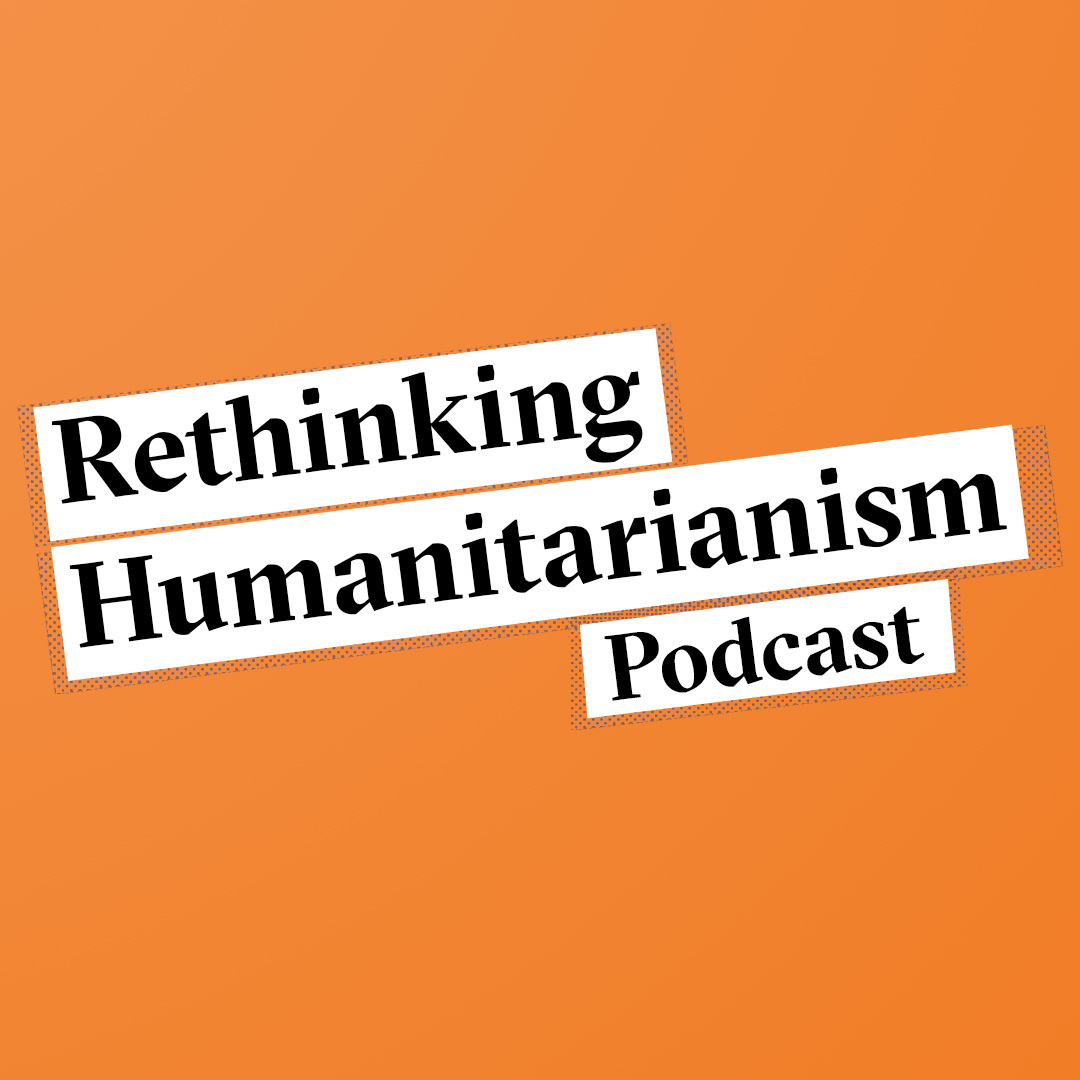










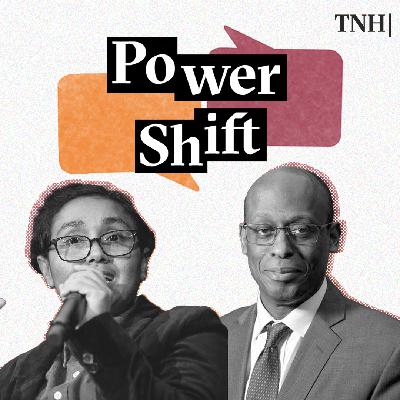
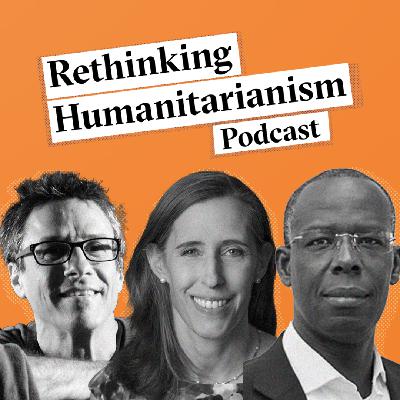
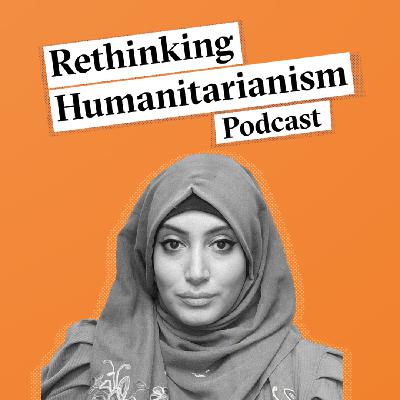
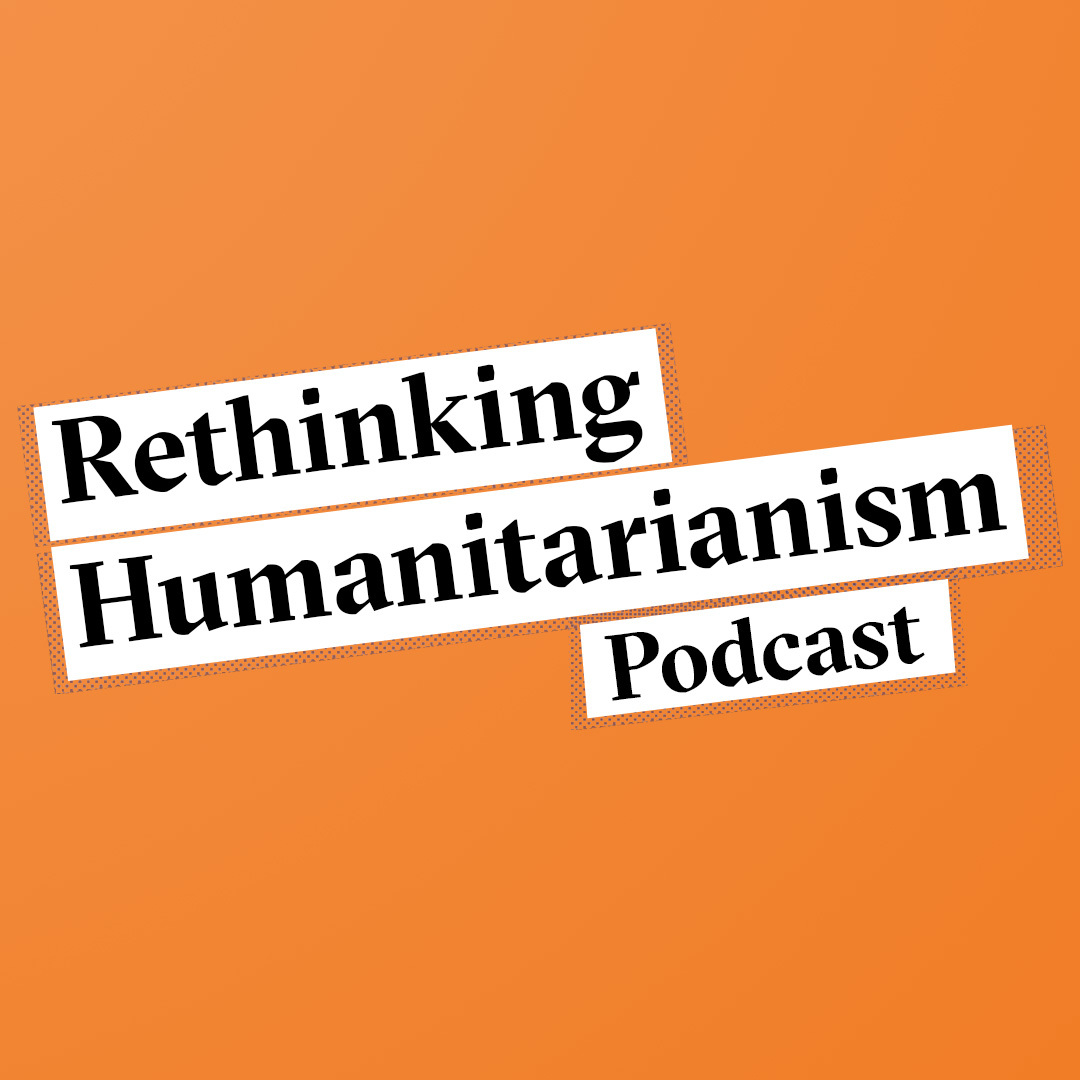
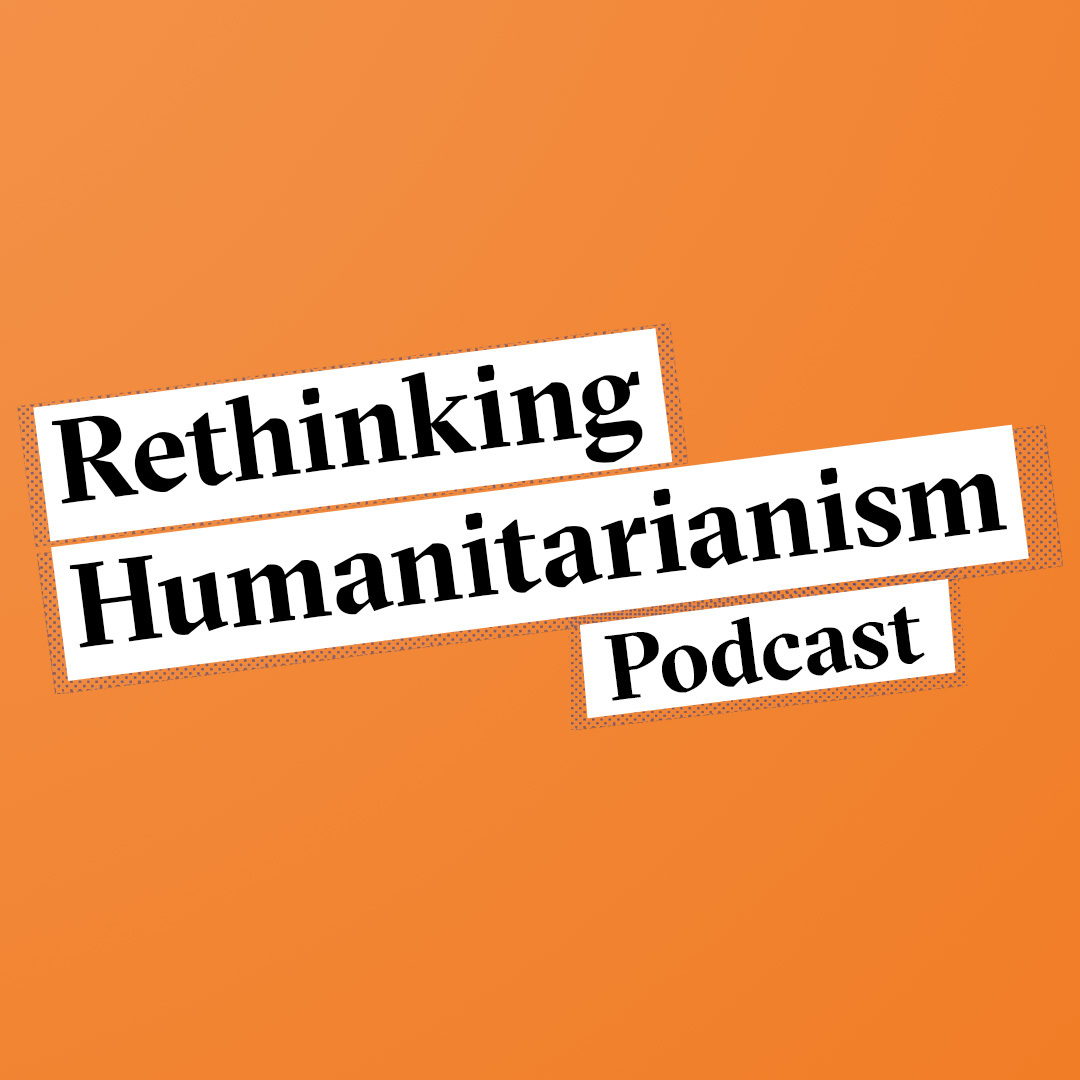



Great podcast. I appreciate how the chair attempted to move the panel toward constructive solutions. It didn't quite get there. As someone trying to do the same, I identify with that struggle. We continue to revel in the problem & self flaggelate. The proposal to take a sledgehammer to institutions isn't constructive & the people suggesting this, won't be there to be accountable for the fall out.